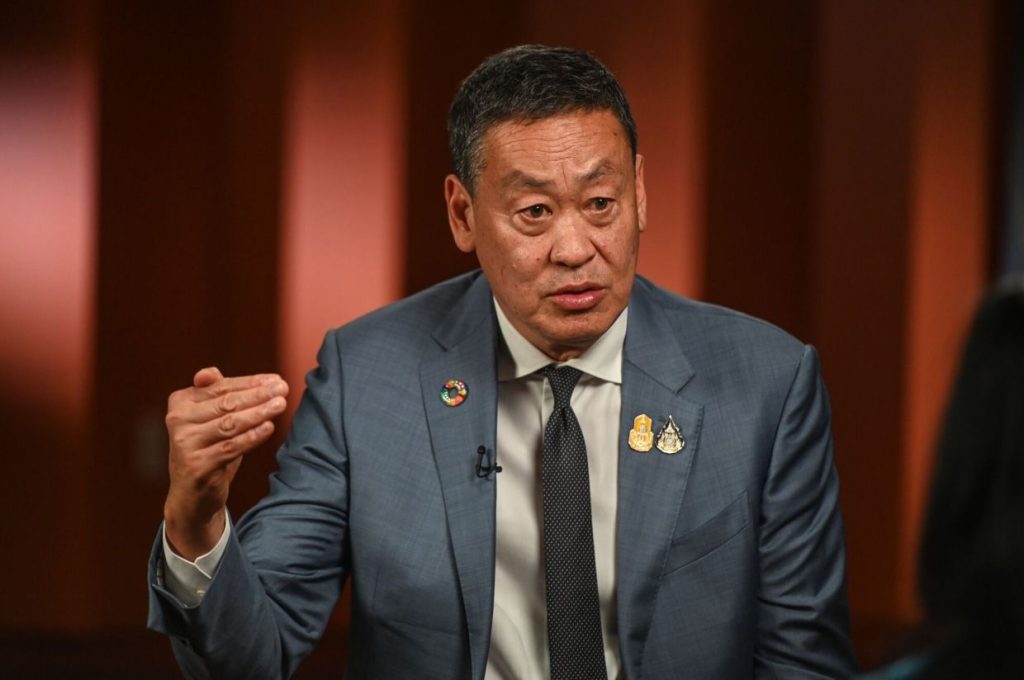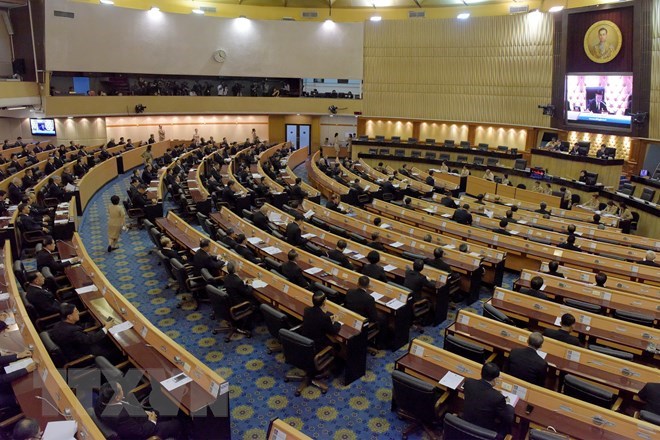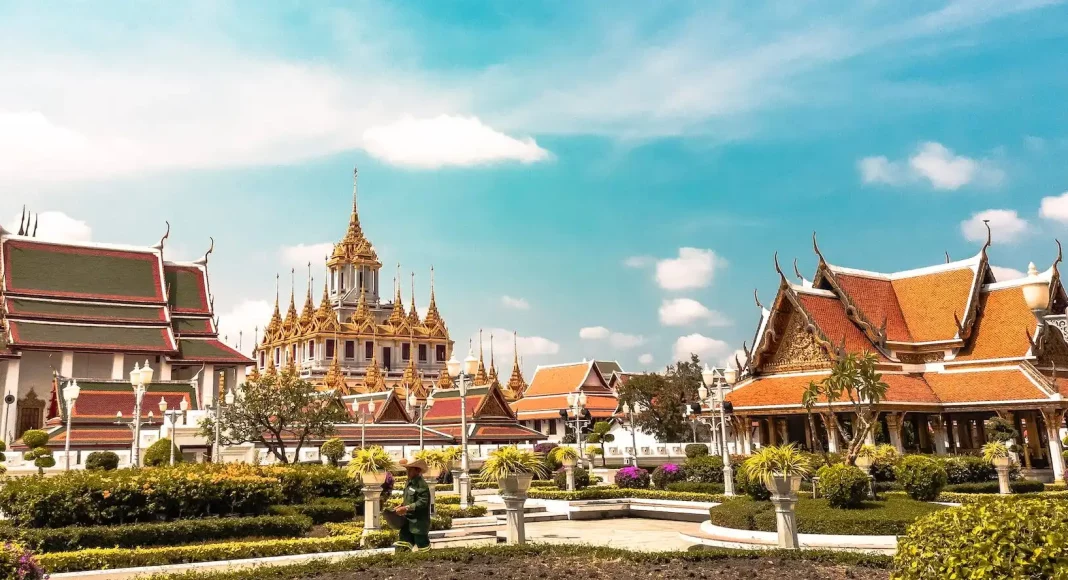Thailand’s push towards legalizing casinos took a significant step forward with the completion of a draft bill by a parliamentary committee.
The legislation aims at establishing a framework for integrated entertainment complexes featuring casinos and will be read in the House of Representatives later this month.
Endorsement with strong bilateral support on the parliamentary floor is almost guaranteed. The draft bill will then be put forward for the consideration of the Cabinet, and that is also a certainty of approval given that the Thai-style integrated entertainment complexes fulfill two of the three key economic pillars set by Prime Minister Srettha Thavisin in promoting tourism and boosting domestic consumption.
An analysis by the Finance Ministry indicated that Thais will constitute three quarters of the spending at potentially 5 to 8 entertainment complexes to be built in the Southeast Asian kingdom.
There will be great cause for cheer for the private sector if a proposed 17 percent casino tax goes through. The rate is roughly on par with Singapore’s tax bracket for mass gross gaming revenue, which will surely buoy investor interest.
In comparison, the Philippines levy a 25 percent rate while Japan imposes almost twice that at a rate of 30 percent. The attractive tax band echoes the economic-friendly stance of the Pheu Thai-led government in Srettha’s zeal to attract more foreign investments.
The new administration’s key policies complement nicely for the upcoming Thai casino industry. Tourism is by far the pet sector for the prime minister, who rolled out a visa-free travel initiative to boost inbound tourism.

Visa exemptions for nationals from China, India and Russia have spiked visitor arrivals into Thailand, and more waivers will be extended to European countries in the Schengen area and other jurisdictions. The government’s focus on major infrastructural development centered on transportation and logistics aligns with the mega-resorts plan, which will bode well for exurban resort development prospects as good connectivity is crucial to the success of the integrated entertainment complexes.
The draft legislation builds on the recommendations in the report by the previous parliamentary committee that sets out a fairly clear regulatory framework. Notably, social considerations on the potential harm of casino gambling take priority given the conservative Thai society.
Beside the headlining casino tax amount, highlights include bidder criteria requiring companies to be Thai-registered entities with paid-up capital of not less than 10 billion baht ($280 million) and an initial license period of 20 years, which augurs well for investment stability. The industry framework posits four different sizes of development investment, but the first entertainment complexes to be tendered will only be for the largest scale, commanding a minimum investment of 100 billion baht ($3 billion).
This and salient elements of the draft “Comprehensive Entertainment Facilities Act,” covering 10 sections and 68 subsections, outline the industry organizational structure, other licensing requirements, social safeguards rules, and what constitutes the content of a Thai entertainment complex.
Rationale and Regulatory Framework
The impetus behind the bill lies in tackling the issue of widespread illegal gambling and potentially boosting the national economy through tourism and tax revenue. The Act lays out a comprehensive regulatory framework for operating these integrated entertainment venues with the establishment of two key committees:
- Comprehensive Entertainment Venue Business Operation Policy Committee: Headed by the Prime Minister, this committee sets policy, approves licenses, and specifies areas for integrated entertainment businesses.
- Comprehensive Entertainment Management Committee: This committee, comprising government officials, oversees complaints, operational plans, and manages funds for gambling prevention and rehabilitation programs.
Licensing and Operations
The draft bill outlines the process for obtaining a license to operate an integrated entertainment complex. Here are some key points:
- Licensee Eligibility: Only registered Thai entities with a minimum capital of 10 billion baht can apply.
- License Duration: The initial license period is 20 years, with a possibility of renewal for five-year terms.
- License Type: Initially, only one license type (XL) with a minimum investment of 100 billion baht will be available. Smaller licenses (S, M, L) may be considered in the future.
- Location: Initially, complexes can be built within a 100-kilometer radius of major airports and in designated tourist and border provinces.
Integrated Entertainment Offerings
Beyond casinos, integrated entertainment complexes will encompass a variety of attractions, including:
- Retail facilities
- Five-star hotels
- Restaurants and bars
- Conference, meeting and exhibition facilities
- Health and wellness facilities
- Marine leisure (marinas, etc.) activities
- Water-themed attractions
- Sports entertainment
- Theme parks
- Thai cultural attractions and local entrepreneur initiatives
- Other activities as determined by the Executive Committee

Taxation
The proposed taxation scheme includes:
- Casino Tax: A 17 percent tax on gross gambling revenue.
- Corporate Tax: A band of 20 percent to 30 percent tax rate on net income.
- Value Added Tax: Exemption from value-added tax.
Social Safeguards
The bill acknowledges potential social concerns and proposes measures to mitigate them:
- Casino Entry Levy for Thai Nationals: This levy aims to deter vulnerable groups from entering casinos. It will be set at a reasonably affordable amount for the average Thai citizen.
- Exclusion Program: Individuals prohibited from entering casinos, such as those court-ordered or requested by family members, will be identified.
- Gambling Prevention Fund: A dedicated fund will be established to support rehabilitation programs, gambling education, and crime prevention efforts.
Thailand’s casino legalization efforts reach a critical juncture with the draft bill’s completion. Early signs suggest the government favors the eastern seaboard, particularly near U-Tapao Airport in Rayong province, for the first entertainment complex. This region boasts excellent infrastructure due to extensive development within the Eastern Economic Corridor zone. While Pattaya remains a popular tourist hub, U-Tapao’s proximity offers a more promising location. Given the current momentum, the casino law could be ratified in 2024, with the first license tender following soon after. This swift process positions Thailand to potentially outpace Japan in opening Asia’s next multi-billion dollar casino resort.











